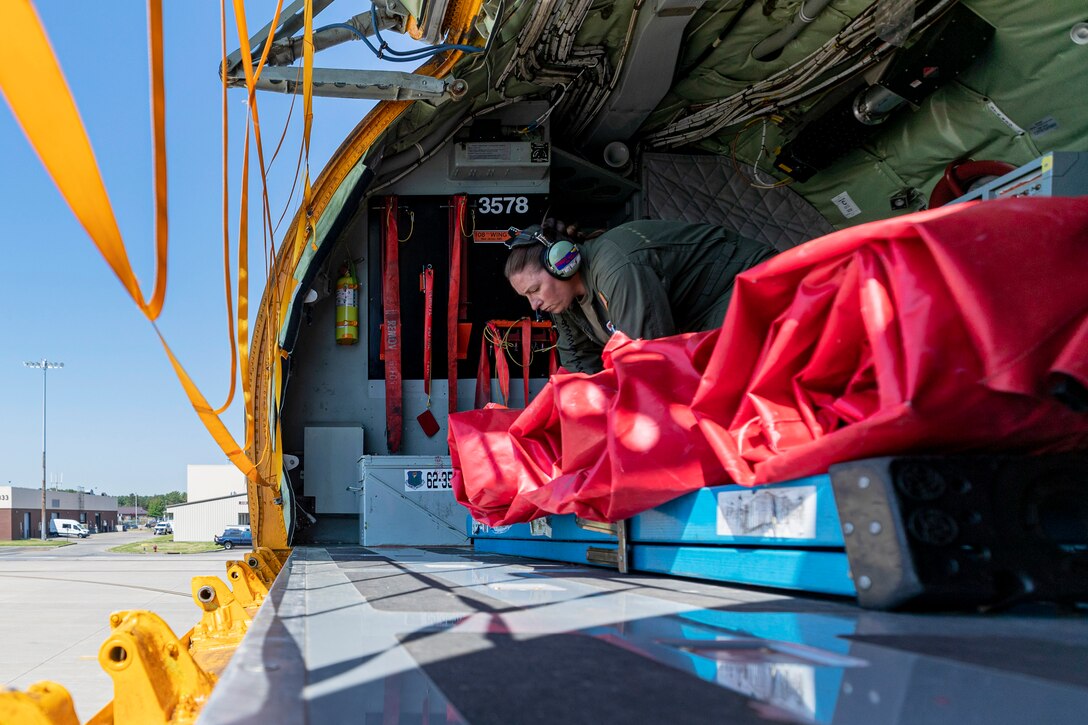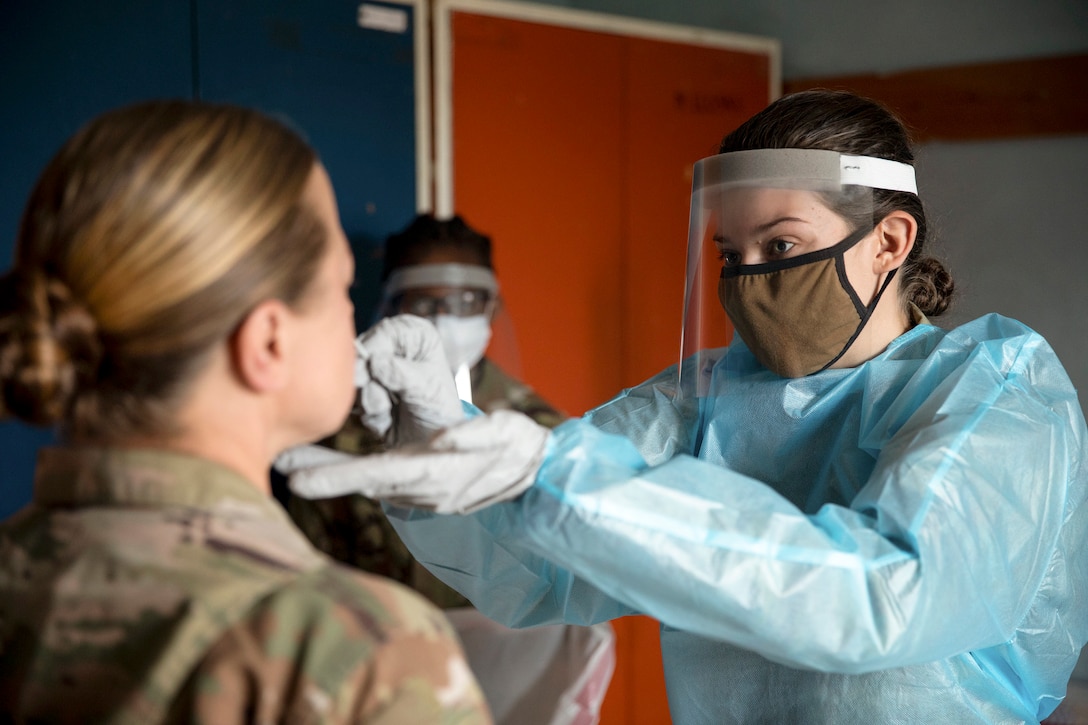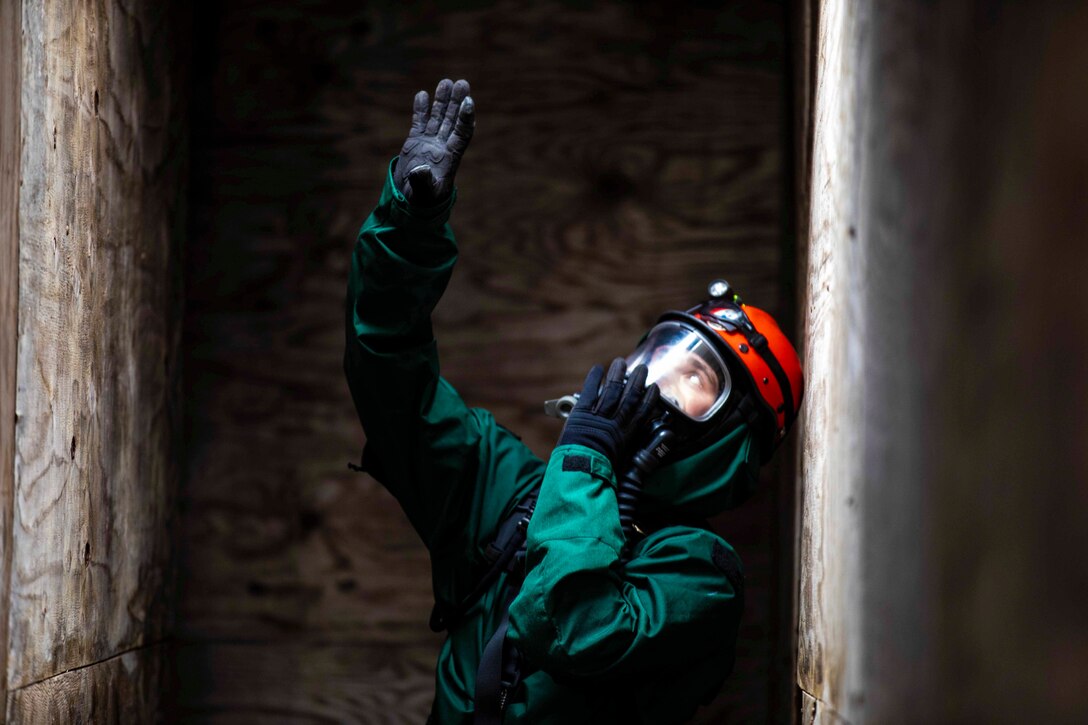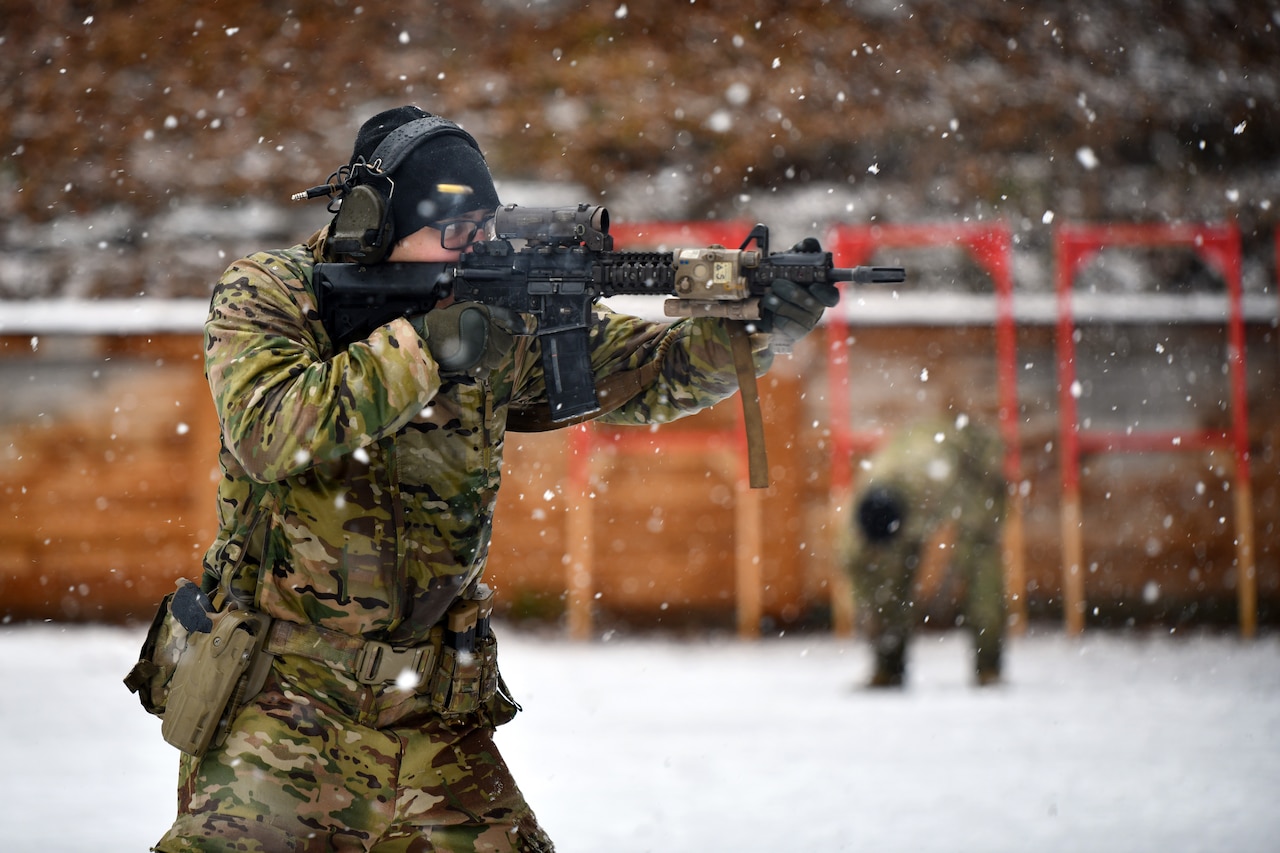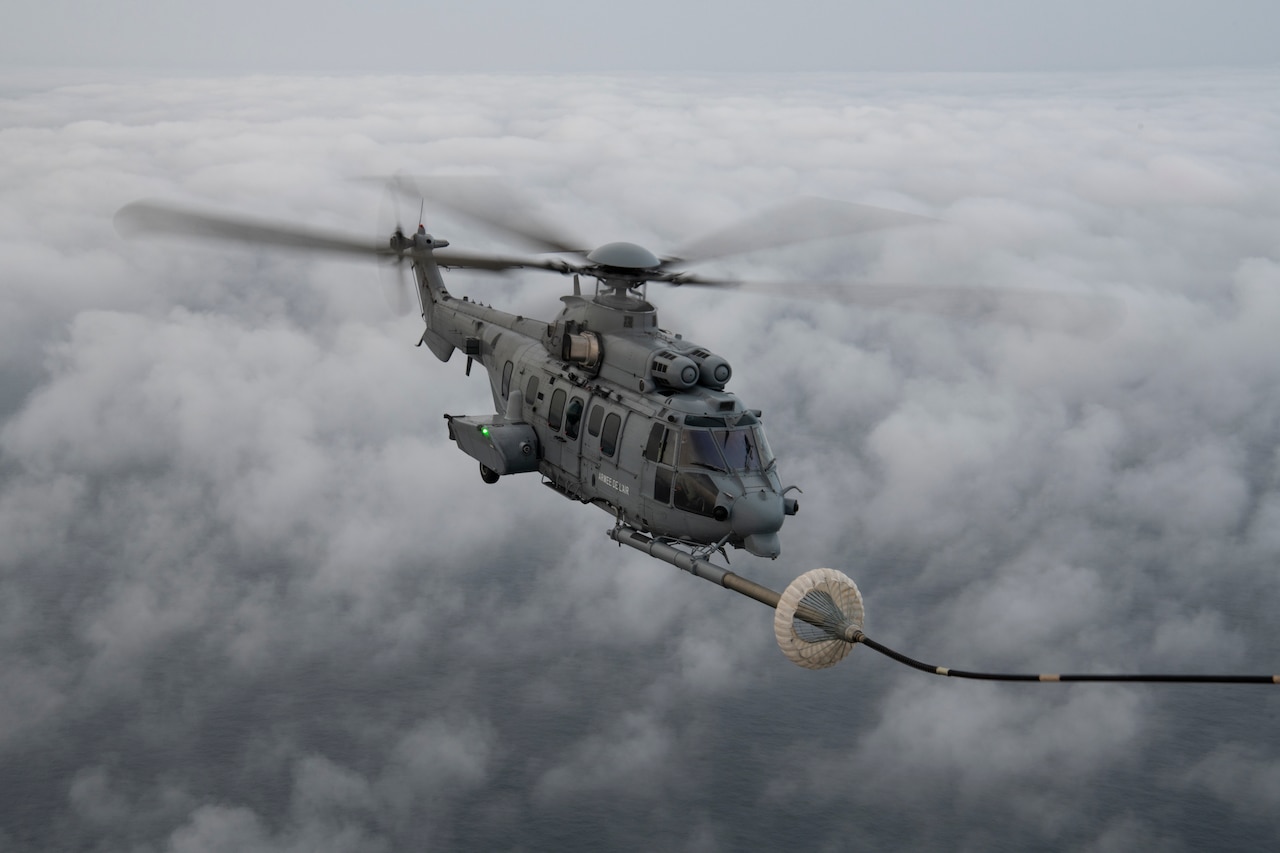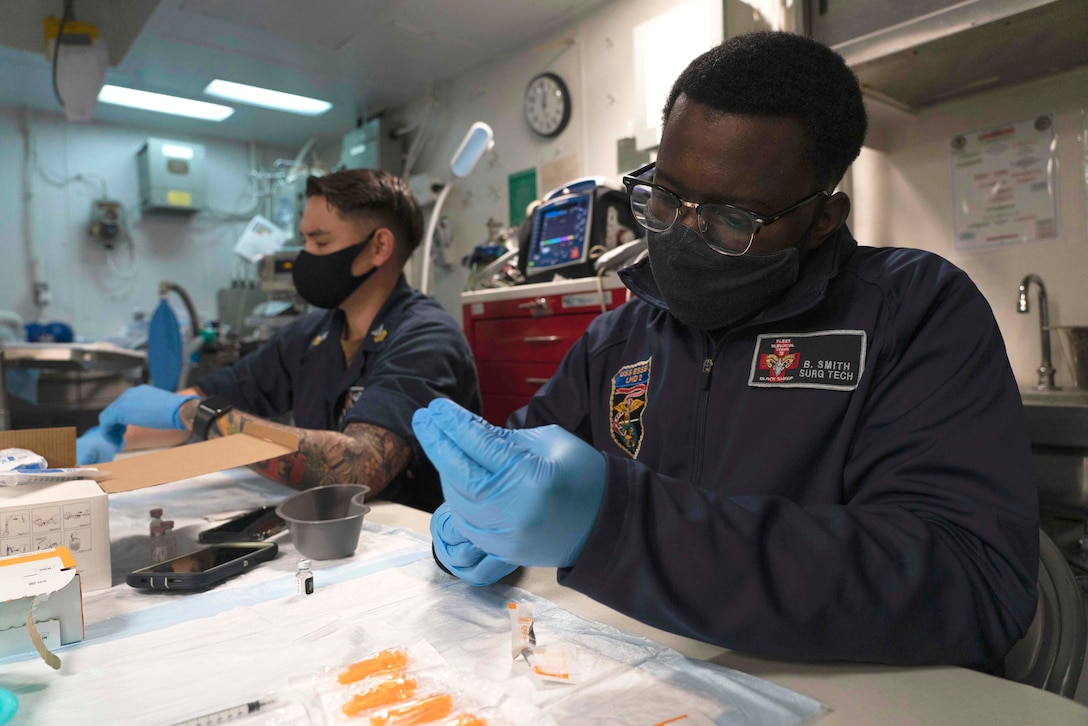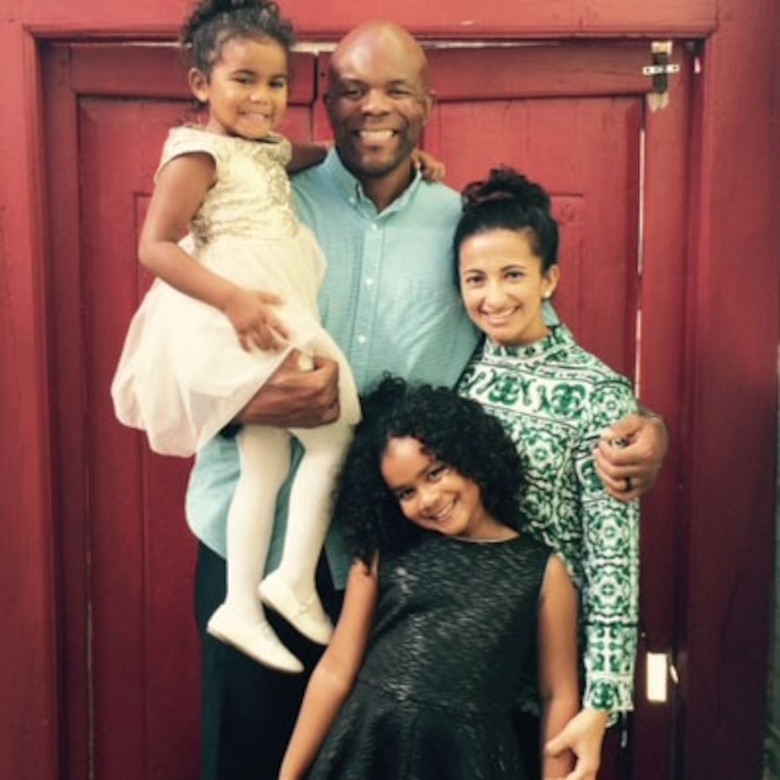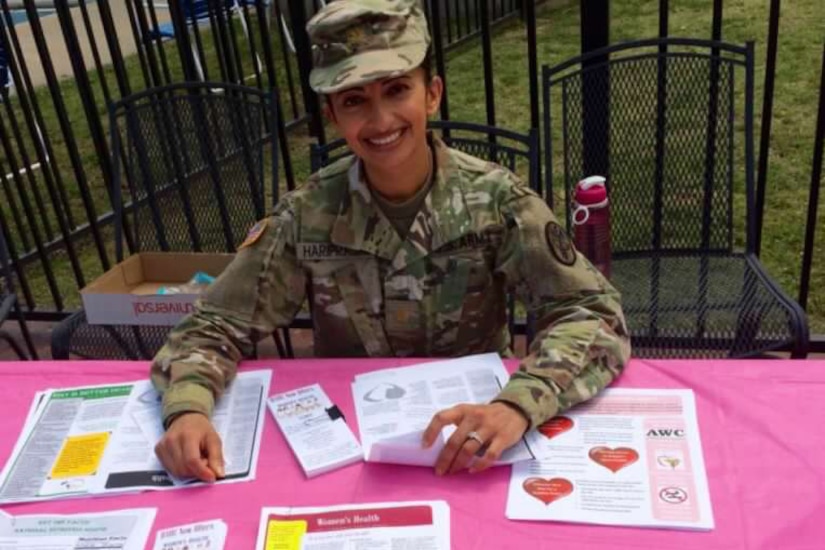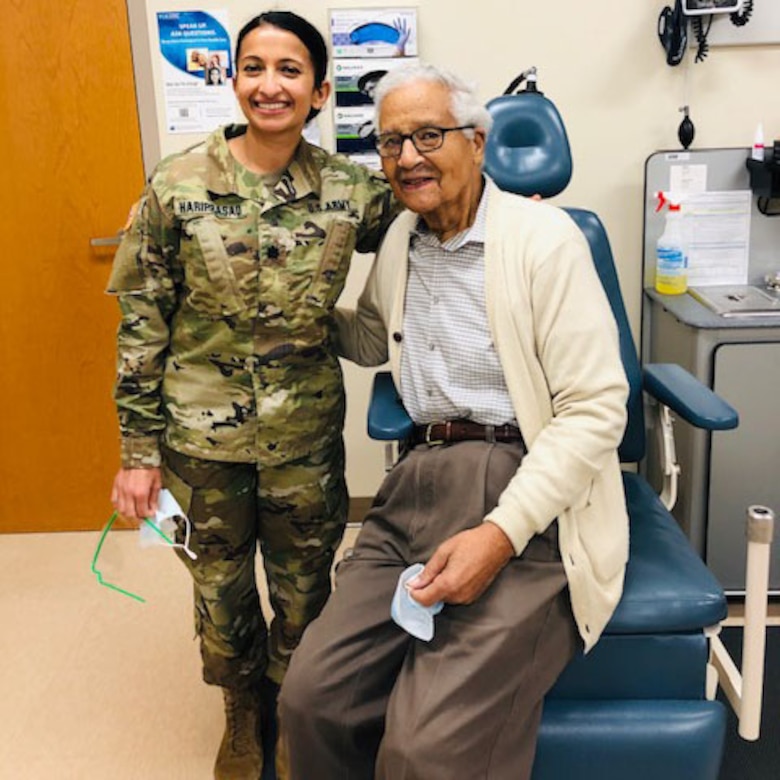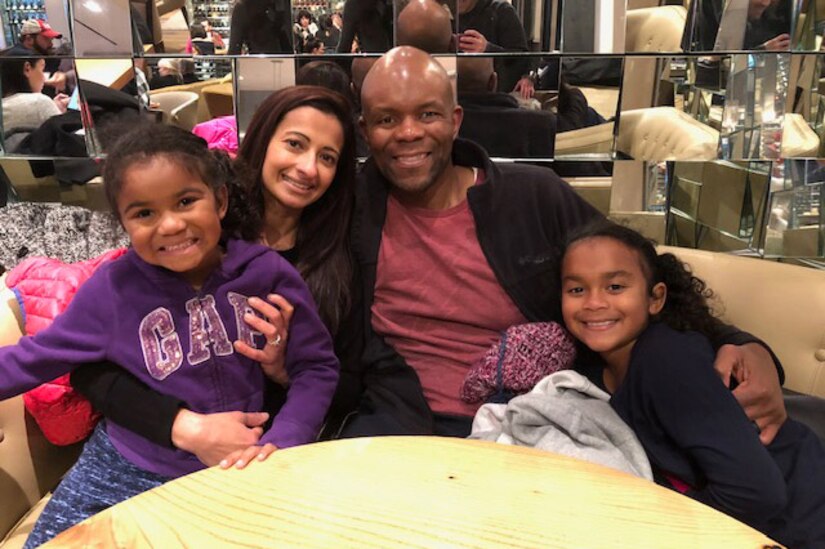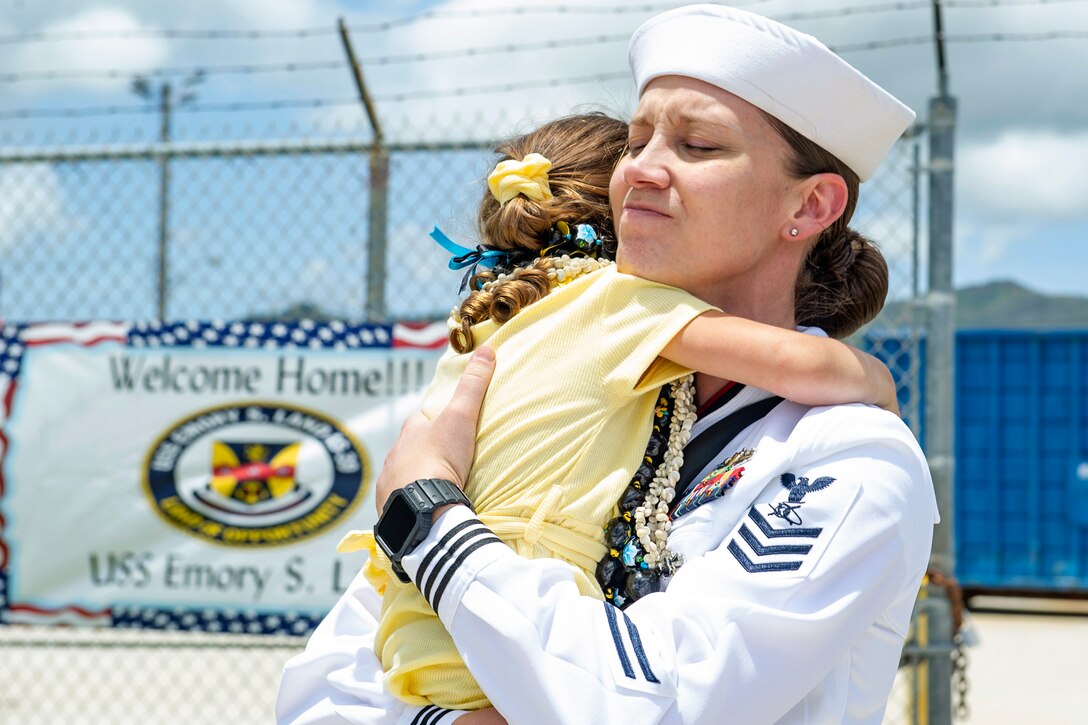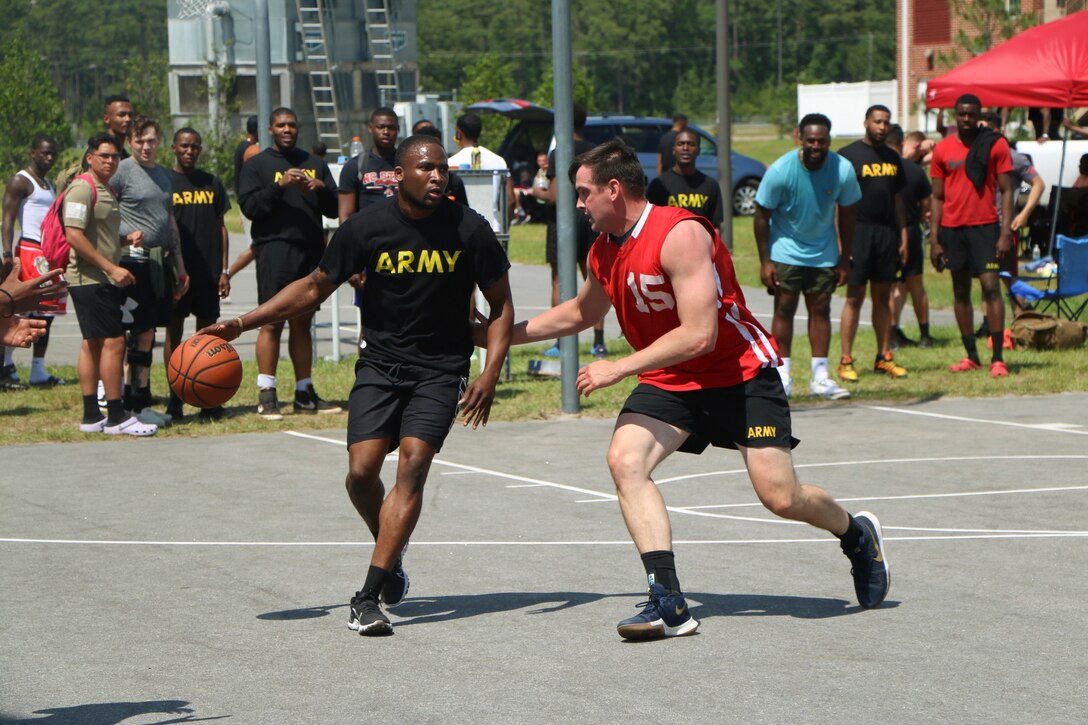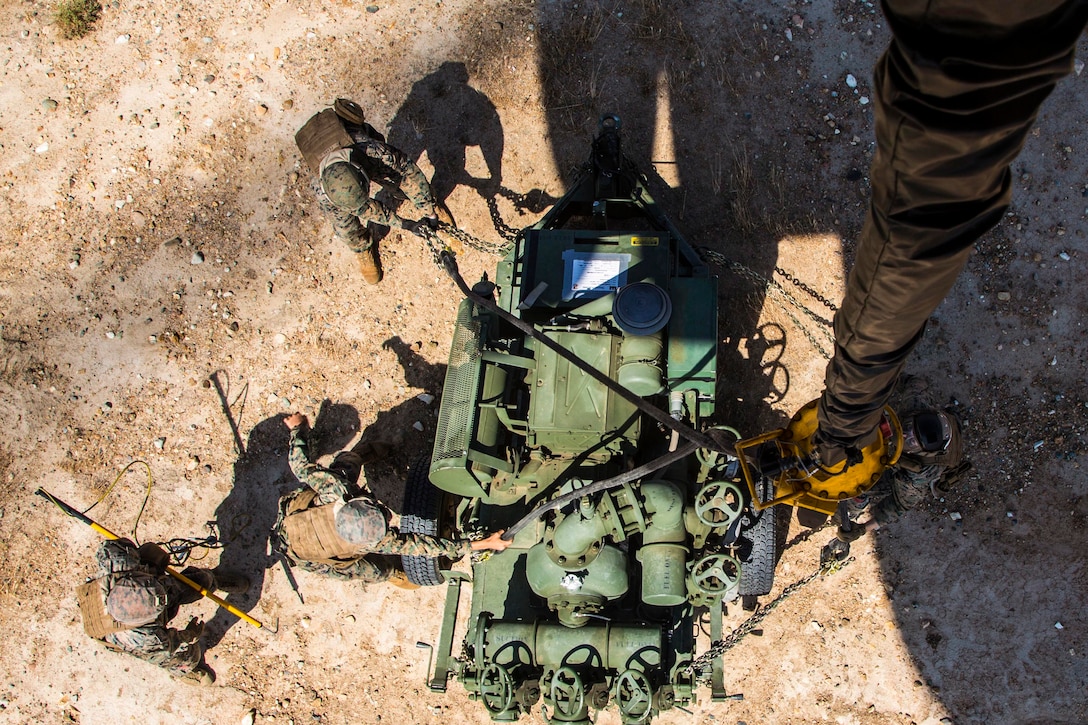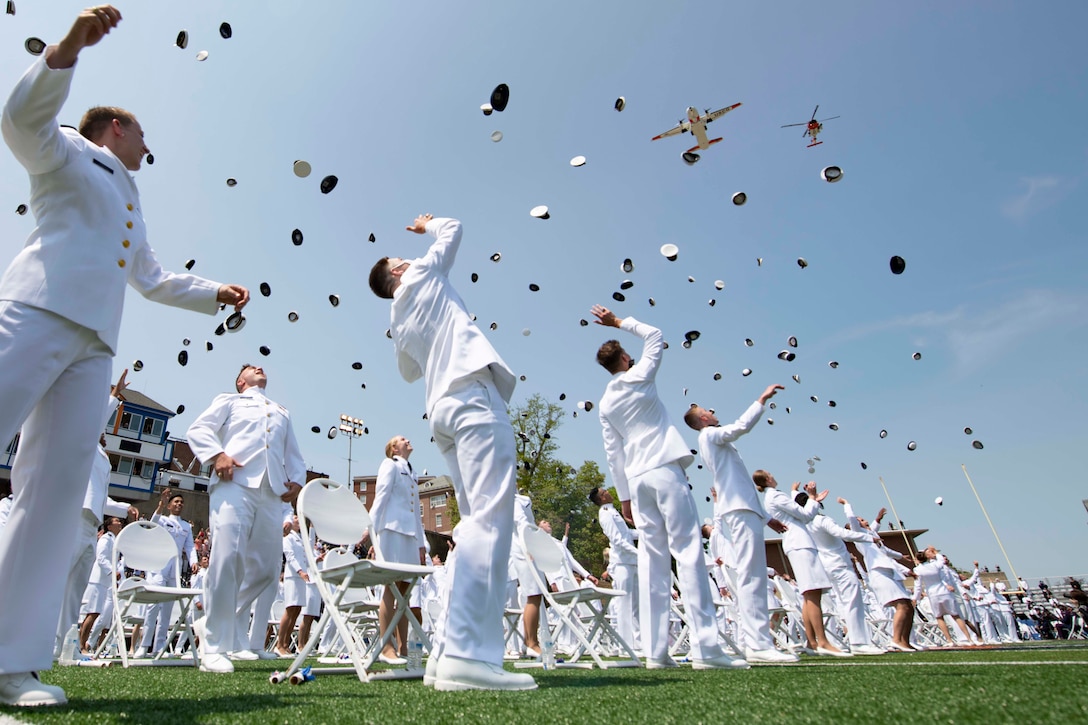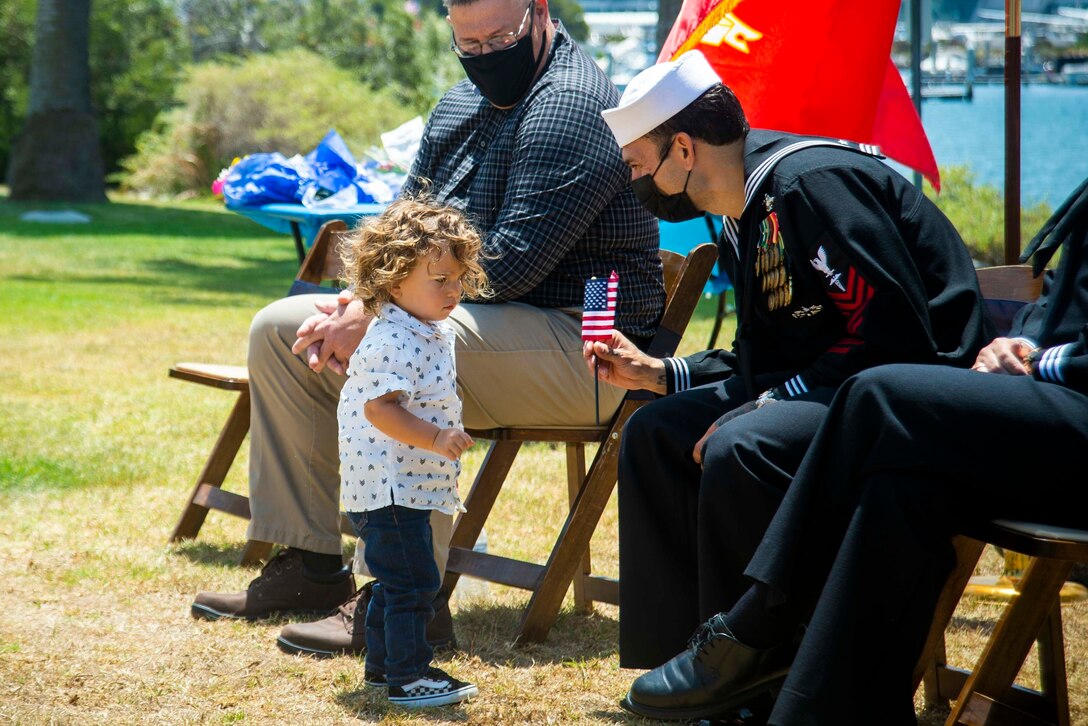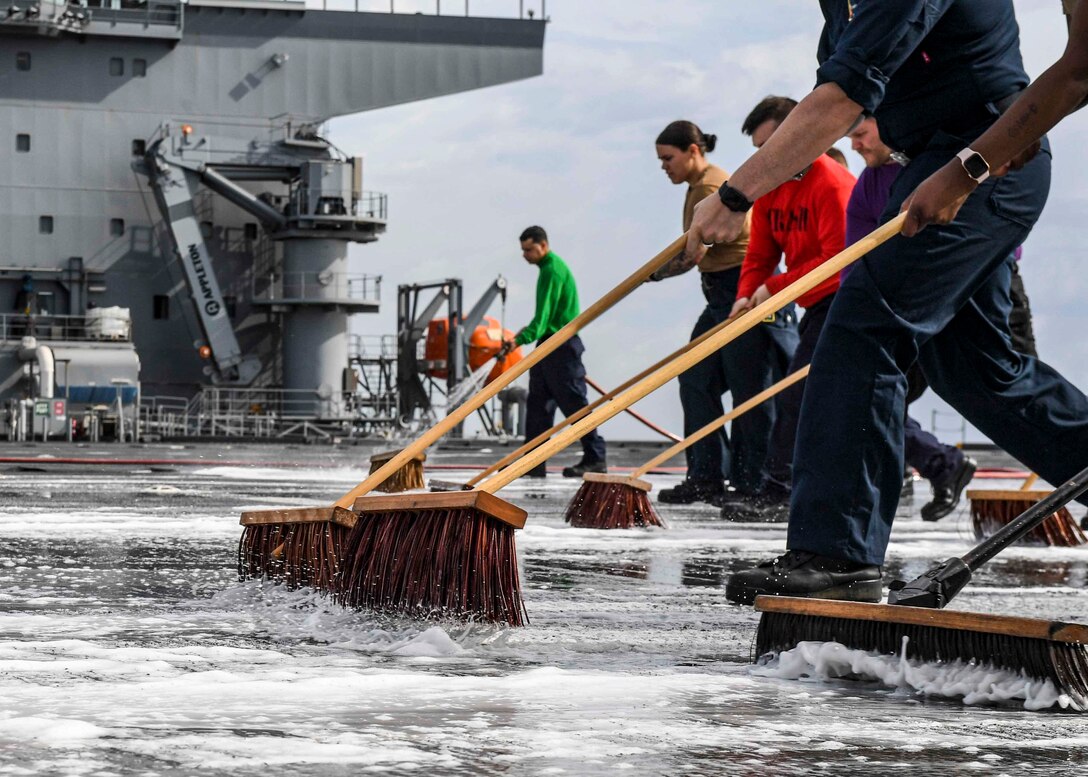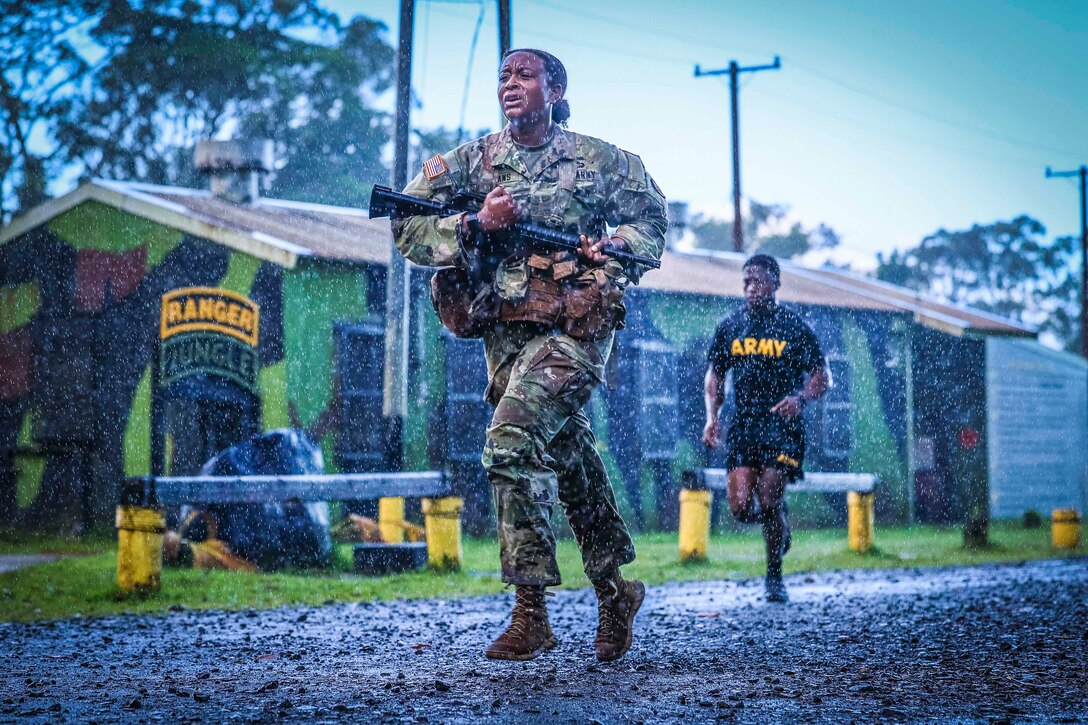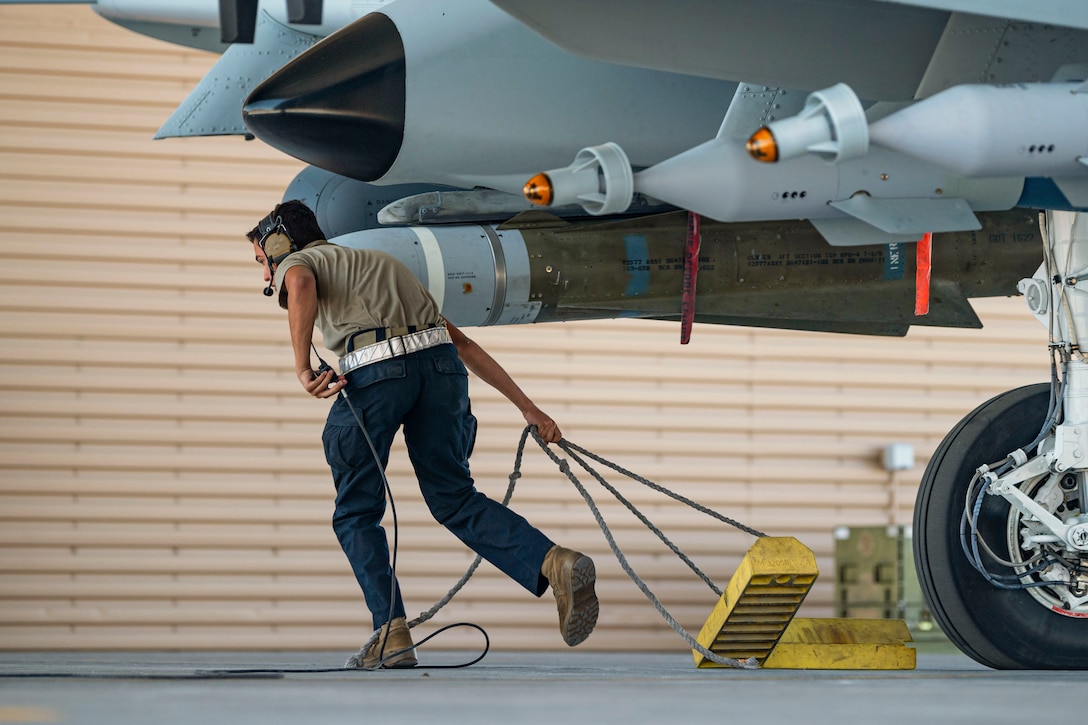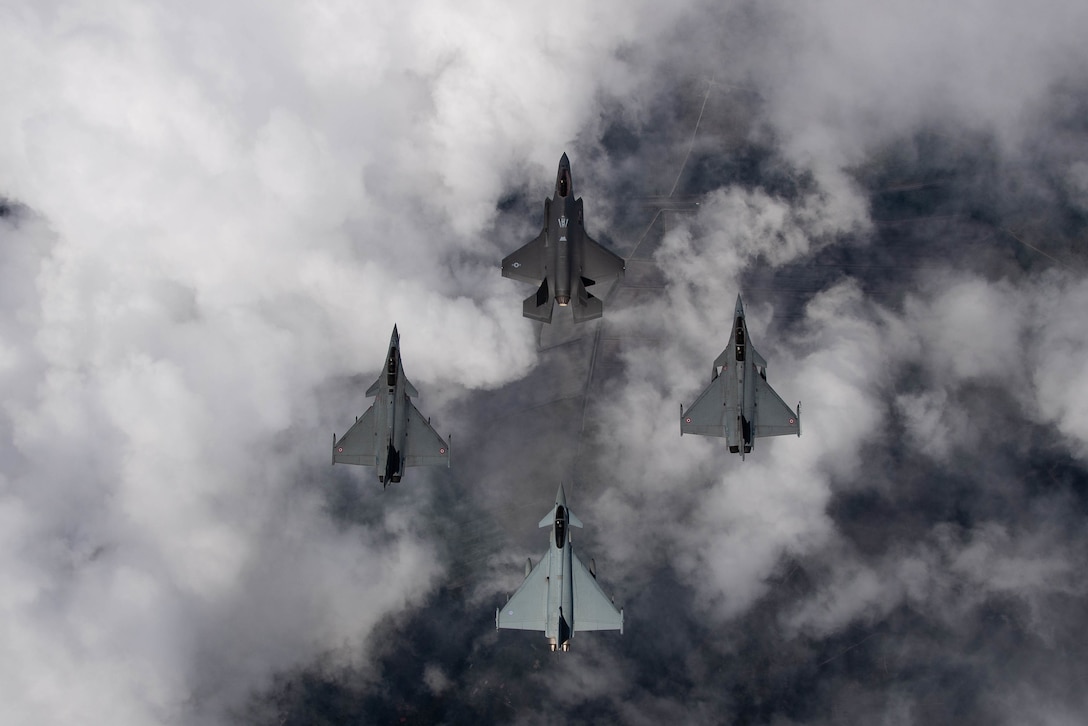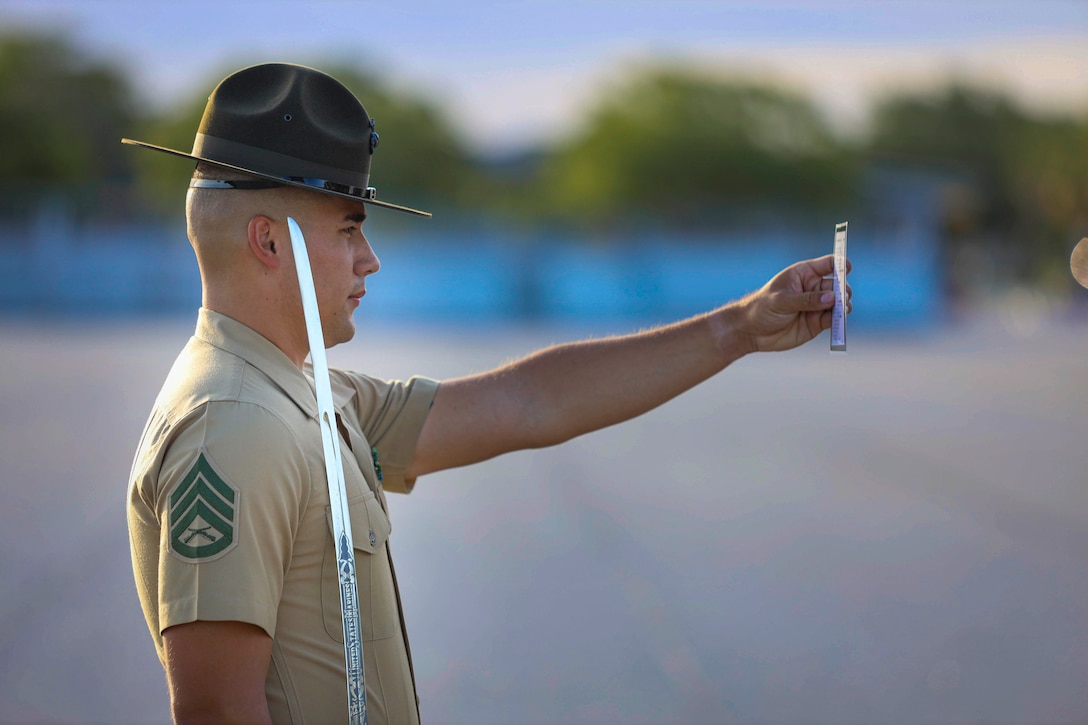Acting Assistant Secretary Of Defense For Health
Affairs Dr. Terry Adirim; Army Lieutenant General Ronald J. Place,
Director, Defense Health Agency
STAFF: Hello, everyone, happy Thursday.
Q: Yeah, happy Thursday.
STAFF: So as you all should know by now, we are focusing today's
press briefing on the department's efforts to combat the COVID-19
pandemic. And in line with those efforts, today, Deputy Secretary Hicks,
and the vice chairman of the Joint Chiefs of Staff, Hyten, released a
memo on, quote, "methods to enable and encourage vaccination against
COVID-19," quote.
To speak about this and the department's efforts -- broader efforts
to defeat COVID-19, we have two familiar special guests with us here
today: Acting Assistant Secretary of Health Affairs Dr. Terry Adirim,
and Lieutenant General Ron Place, the director of the Defense Health
Agency.
They will deliver opening remarks and then we'll take a few moderated questions. So, with that, welcome them to the stage.
ACTING ASSISTANT SECRETARY OF DEFENSE DR. TERRY ADIRIM: Thank you.
All right, good afternoon everybody, thank you for joining us here
today and thanks for all the important work you do communicating with
our troops and their families. General Place and I are going to brief
you today on DOD's efforts to combat COVID-19.
DOD is continuing to play a key role in supporting the
whole-of-government approach to defeating COVID, including supporting
vaccination of our fellow Americans while ensuring our own population is
vaccinated.
To date, we've administered over 3.3 million doses to eligible DOD
personnel with 58 percent of our active-duty service members having had
at least one dose. Note that one month ago, when we opened vaccination
to all, we were only at 37 percent of active duty service members
receiving one dose, so we're making good, steady progress.
I also want to note that our active-duty and National Guard have, to
date, administered over 15 million doses of vaccines, and we thank them
for their hard work in advancing vaccination across the country.
Since the start of the COVID-19 pandemic, DOD has had nearly 300,000
cases, just over 4,000 hospitalizations, and unfortunately 351 deaths.
These are total numbers that include our military service members, their
dependents, civilians and contractors.
It's also important to note that COVID-19 infection incidents and
testing positivity rates for DOD personnel are lower than for the
civilian population, which is a sign that our force health protection
measures are working.
With last month's expanding of eligibility of vaccination to all DOD
service members, personnel and beneficiaries, the department has
redoubled its efforts to encourage everyone to get vaccinated. In fact,
as Jamal mentioned, the deputy secretary and the vice chairman of the
Joint Chiefs of Staff issued a memo today to senior leaders that
reaffirms the importance of vaccination and identifies the tools for
effective vaccine encouragement.
These tools are already in widespread use by the services, but this
memo highlights their importance. This memo focuses on four areas that
include: increasing accessibility to vaccine, providing opportunities
for education, leveraging active duty personnel policies to promote
vaccination, and ensuring engagement at the lowest level to acknowledge
and address individual concerns.
We're honest and up-front in acknowledging the department is
confronting many of the same challenges that the rest of America is in
maximizing vaccine acceptance. We're using every tool possible to
increase vaccination, and we'll continue to do so from the secretary to
the most junior leader.
Last week, in accordance with the CDC issuing new guidance on
masking, the department announced that fully vaccinated DOD personnel
can safely participate in most activities and are no longer required to
wear a mask indoors or outdoors at most DOD facilities.
Unvaccinated personnel, however, should continue wearing masks as
required by applicable DOD policy to protect themselves and others who
have not been fully vaccinated. To that end, we are updating our force
health protection guidance to align with this CDC guidance on masking,
while ensuring that masks continue to be used in appropriate settings.
We know our fight against COVID-19 isn't over yet, but the CDC's
announcement underscores the fact that these vaccines work: they protect
the recipient and their family members, and will enable us to get back
to normal.
And lastly, as you're aware, the FDA recently expanded the emergency
use authorization for the Pfizer-BioNTech vaccine to include adolescents
12 and above. We started shipping this vaccine OCONUS on May 14th, in
anticipation of this decision, and there will be enough vaccine in place
for first and second doses for all our overseas adolescent population.
This authorization and our administration of vaccines to our
adolescents is another significant step in our fight against COVID-19.
DOD is committed to vaccinating all of our eligible adolescents, and
I'll now turn it over to General Place who will speak more in depth
about these issues.
LIEUTENANT GENERAL RONALD J. PLACE: Sure. Thanks, Dr. Adirim.
And good afternoon to all of you, here and on the phone.
I'll briefly expand on Dr. Adirim's remarks regarding our vaccination
reach. As she mentioned, as of this morning, 58 percent of the
active-duty force has received at least one dose and 44 percent are
fully vaccinated. That number continues to increase every day. Senior
commanders, military medical leaders, fellow service members and family
members are all contributing to the increased vaccination rate.
As Dr. Adirim also noted regarding the emergency use authorization of
the Pfizer vaccine for 12 to 15-year-olds, last week, we began shipping
the Pfizer vaccine to our support -- to support our overseas adolescent
community, and those vaccinations actually have already begun. We
continue to ship the vaccine to many installations in the United States
as well that did not yet have the Pfizer vaccine.
For those military installations that -- in the United States that
don't have the Pfizer vaccine, we're encouraging beneficiaries to obtain
their vaccines from local civilian providers, pharmacies, or other
outlets. Now that we've moved from a supply-constrained environment to a
desire-constrained environment, we don't anticipate any challenges with
access to vaccine in either the military or civilian settings.
As Dr. Adirim also noted, our case rates and hospitalization rates
are well below civilian rates. As of this morning, we have 29 inpatients
in military hospitals worldwide that are COVID-positive.
I would point out that our hospitalizations are at the lowest number
within the department since June 12th of 2020, and only slightly higher
than they were in early June. The lowest number that we have
consolidated records of was on June 7th: twenty-one inpatients; another
indication of the degree to which the vaccine is keeping people healthy
and out of the hospital.
As a military force, we continue to learn and adapt our strategies to
combat this disease. Earlier this week, I hosted a meeting with our
allies and partner nations, military medical forces to better understand
effective approaches in terms of both treatment and vaccinations. I'm
grateful for the contributions and collaboration of so many medical
professionals throughout the United States and across the world.
Finally, another thank you to our service members and other DOD
personnel who have chosen to get vaccinated and to -- and continue to
encourage their fellow service members, family members and friends to do
the same as well.
Thanks again for joining us today, I look forward to your questions.
STAFF: Thank you very much.
First question, Megan?
Q: First, is the memo going to be sent around or put up on Defense.gov? The memo --
STAFF: The memo should be on Defense.gov right now.
Q: Perfect. Other question, about lifting of the mask mandates -- and
probably for General Place. Whose responsibility is it to maintain
accountability in workplaces or in units for who's vaccinated and who's
not, who should be wearing a mask and who doesn't need to?
GEN. PLACE: Sure. That's leader business, and so where you're a
member of a unit, of course commanders' business. Where we're civilian
employees, then we use the appropriate, you know, labor law or internal
discipline, like we do for the thousands of regulations and rules that
we have for everyday business. It's just another one of those rules.
Q: For Dr. Adirim, what's an example of leveraging policy to promote vaccine (inaudible) rates --
DR. ADIRIM: Sure.
Q: -- (inaudible)
DR. ADIRIM: Sure. Our commanders have wide authority to use personnel
policy. So, for example, one policy that is not necessarily a
commander, but one of the policies, people who are vaccinated do not
have to quarantine pre- and post-travel. But if you're not vaccinated,
you still have to. That's an example of one policy.
With regard to what commanders have control over, they have control
over leave, so they can give liberal leave, for example, to those who
get vaccinated.
STAFF: Next question, we'll take one by the phone. Peter Loewi?
Q: Hi, thanks very much for doing this. I wanted to ask about South
Korean troops being offered the J&J vaccine. What other countries
are being offered the vaccine through the U.S. military, what other
countries have asked for the vaccine through the military, and have U.S.
forces in Japan been asked or offered to vaccinate to prepare for the
Olympics?
DR. ADIRIM: Do you want to start?
GEN. PLACE: Sure.
So just like we do for all allied partners or other nations who have
dialogue with the United States, the policy decisions are made by the
policy decision-makers, led by the White House and the President. Our
job is to execute against those policy decisions. I am currently unaware
of any changes in any policy decisions for us to execute against.
In terms of the Olympics, ma'am, that's not something I know anything about.
DR. ADIRIM: Yeah. No, I have no awareness of that. But as General
Place said, these are decisions by policy-makers above our pay grade,
and we're not aware of anything that we have been told to support at
this time, so.
STAFF: Great. Next question, Janne?
Q: Thank you. Doctor, I have a question for you. The CDC has stopped
monitoring breakthrough infections among the vaccinated individuals. Now
(inaudible) started -- everybody, you know, has started to take off
their masks. Are there any new guidelines for the breakthrough
infections for the CDC or the DOD?
DR. ADIRIM: We are continuing to test those individuals who are
symptomatic, just as we have before. We are also continuing to test
under our current force health protection guidance, under those
circumstances that we need to.
For example, those individuals who are not vaccinated -- I know that
wasn't what you had asked, but -- those individuals who are not
vaccinated may have to be tested before travel. So we're currently under
our current force health protection guidelines with regard to testing.
Q: So are you going to (inaudible) people dying because of that, you know, breakthrough infection, you know that --
DR. ADIRIM: From vaccinated individuals?
Q: Yes, yes.
DR. ADIRIM: Right. The vaccines are extraordinarily safe. They --
people are not dying from infections. In fact, what the data and the
science has shown us is that the vaccine prevents serious infections,
hospitalizations and deaths. So --
GEN. PLACE: Ma'am, if I could even --
DR. ADIRIM: Yeah, go ahead.
GEN. PLACE: -- amplify that just a little bit. So one of the
decisions that the Department of Defense made almost a year ago was to
activate a COVID-19 registry, which is a database essentially of all --
all of our beneficiaries, all of our patients who have ever been tested
positive. And we also have the same sort of database for everybody that
we vaccinated. So even though the CDC isn't requiring it, we still track
it.
So what I can tell you, as of the first part of this week, which is
the last time I saw the data, of the 1.5 million or so just showed up
who are fully vaccinated, we've had 1,640-some -- I don't remember the
exact number, again it was earlier this week -- but about 1,640, 1,650
that were breakthroughs. Of those 1,650 or so that were breakthroughs,
we've had 24 hospitalizations. Of those 24 hospitalizations, we have had
zero deaths.
So the Department does track to that level of detail exactly what's
happening to whom. The good news to all that -- as opposed to the -- the
95 percent or whatever rates that we're seeing published from the phase
2 or phase 3 clinical trials -- if you do that math, 99.9 percent
effective for our beneficiaries of -- of preventing breakthrough
infection, and 99.999 percent effective in preventing hospitalization
and 100 percent in preventing death.
Now, that's all-comers, right? So all vaccines. So that's the Pfizer
vaccine, the Moderna vaccine, and the J&J/Janssen vaccine. That's
the data that I can at least globally share with you that I track as the
director of the Defense Health Agency every week.
Q: Do you have anything data about the overseas troops they have
involved with the breakthrough infections, anybody? So if any --
(CROSSTALK)
GEN. PLACE: So -- right, so that -- that's -- it's a great question.
The numbers are too -- too small. I mean, 1,640-some breakthrough
infections isn't a large enough number to be able to do regression
analysis and look at specific -- specific factors that may increase or
decrease risks around the world. It's just not a big enough number. And
that's a good thing, right? It's good that we don't have that many
breakthroughs.
But -- but when we talk about safety and efficacy -- in particular
efficacy, that's why we keep talking about it within the Department,
it's 99.9 percent effective in -- in the community for us and 99.999
percent effective in preventing hospitalization. That's incredible.
Q: That's why CDC stopped monitoring. They don't do any more this (inaudible) probably. Thank you very much.
STAFF: Next question, Caitlin?
Q: Yes, I wanted to come back to what you said about moving into a
desire-constrained environment. Can you talk a little bit more -- tell
me what that means?
GEN. PLACE: It means people who want it. So before, it was supply.
There was more people who wanted it than we had -- had vaccine for. Now,
based on the increasing manufacturing and those that really, really
wanted it, largely have gotten the vaccine and now it's people on the
fence or people who, quite frankly for whatever their personal reasons,
have decided not to.
So to the point that Dr. Adirim was making is: how can we get that
information space, how can we really show people true data? It's one of
the reasons I'm pounding a little bit hard on how effective it's been in
our community, because I think there's a lot of people who think it's
not an effective vaccine. These vaccines -- this suite of vaccines are
incredibly effective.
So it's about how do we inform: what is the real decision that you're
making? So when I say desire-based it's what's -- what's in it for me,
right? How do I see value to this for me? Or how do I see this for a
value for my kids?
And one of the interesting things that I think that we're going to
start seeing is that some parents with adolescent kids who want their
kids vaccinated -- the kids are going to say, hey mom, hey dad, what
about you? Are you vaccinated? And the embarrassing answer is going to
be, in some cases at least, no. Well, why not? And then what's that
going to do to that desire part of the equation. So it's all about that.
What are the barriers? How close am I to a vaccination site? How easy
is it to get an appointment? All those things are improving over time.
And that's the sort of things that I mean by a desire-constrained
environment.
Q: Do you think that the DOD's decision to allow the masks to come
off for vaccinated individuals -- have you seen an increase in that --
the desire to get vaccinated? And do you think that that will have an
effect in that area?
GEN. PLACE: Well, ma'am, I have a hard speculating on why people do
what they do -- and sometimes I don't know why I do what I do
(Laughter). But the amount of time that that has changed has only been a
few days. And so we -- we've been seeing a slow decrement in the -- in
the number of people who come to our vaccination sites over time. It's
neither increased nor decreased since the -- the deputy secretary
changed the policy for the Department late last week.
STAFF: Let's go back to the phones. We have Patricia from Military.com.
Q: Hi, guys. Thanks for taking my question. I know you aren't
tracking vaccine declinations, but I'm wondering if you have a sense at
all of how many service members may just not ever get vaccinated and,
you know, how you're going to handle that. And -- and are you planning
for the FDA approval of the Pfizer vaccine?
DR. ADIRIM: Okay, so I hear two questions in that. Hi, Patty. How are
you? So the first part of it with -- what was the first part of the
question?
Q: It was about declinations and whether you're going to have a sense
of how many service members may just forgo the vaccine altogether.
DR. ADIRIM: No, we are not tracking declination, you're correct about
that. But we are a reflection of society. So I would imagine that those
that may be -- and we don't know the answer to this -- like, refusing
vaccination may reflect what we're seeing out in the civilian sector.
That said, there's no plans at this time to make vaccine mandatory.
If and when the FDA does license the vaccine we'll make a decision at
that time.
STAFF: Next question, Courtney?
Q: Just one follow-up on -- I actually had the same question. But if
you're not taking the declinations I understand that, but do you have
any sense of, like, sort of the demographics of who has not been
vaccinated among the -- the uniform military? Is there, like, a certain
age rage that you're focusing on or -- or is there, like, a regional
difference? Like, people who are stationed overseas maybe are more or
less likely to get it. Anything like that that you can share on who's
not getting at this time?
DR. ADIRIM: Yes. No, we do -- we do have some of that data.
GEN. PLACE: Yes, ma'am. So again, if you look at the demographics of
America, that's the same demographics who are accepting the vaccination.
We're finding that -- that while early on -- and I think we talked
about it a little bit -- when we were in our phase-based schema we were
somewhat concerned about there was some disparity between demographics
of who is being vaccinated and what the demographics of the Department
of Defense was. What we found now that we've gone through all of our
phases of our schema, that the percentage by race, or the percentage by
ethnicity, or the percentage by age, or the percentage by gender, it's
generally the same as what we have in the Department.
So there's no particular demographic that makes you more likely or
less likely, with a couple of exceptions. Our physicians are vaccinated
at a really high rate. Those who are over the age of 65 are vaccinated
at a really high rate. Those who are staff and particular residents of
the two Armed Forces Retirement Homes are vaccinated at extraordinarily
high rates --
DR. ADIRIM: Almost 100 percent.
GEN. PLACE: -- as an example.
So what we're seeing and what we're responsible for looks an awful
lot like what the rest of America looks like. If you look overseas, on
the other hand, every single one of the COCOMs is now vaccinated both
partially and fully at rates that are higher than the United States. And
in some cases at extraordinary high rates.
DR. ADIRIM: And I would add to that, I think the reason why we're
seeing this is because like in the civilian sector you have access to
issues in the military, especially for our armed forces, we don't have
that access issue. Right? So they have equal access among groups. So
we're just not seeing the same level of disparities that we're seeing in
the civilian sector.
Q: Can I just be clear, when you said there's no plans to make the
vaccine mandatory. But -- but if they do -- the FDA does approve full
authorization or whatever for Pfizer, could you see there being a
mandatory for certain elements of the military?
So the nuclear force, people who have -- like maybe are in a science
or like an immediate reaction force or something, could you see that
being implemented?
DR. ADIRIM: Yes, well, I can't speculate at this time with regard to
who -- if and who would be -- it would be mandatory for. But just
understand we mandate licensed vaccines for our uniformed service
members routinely. So you can imagine that, you know, like other
licensed vaccines, you know, we may consider it.
Q: Could be the whole force then, not necessarily even for a particular --
DR. ADIRIM: I can't -- I can't, you know, make that conjecture now.
If and when vaccines -- these vaccines do become licensed then we'll
make a decision at that time.
GEN. PLACE: Next question, Oren?
Q: Do you have any updated information on the prevalence of any of
the COVID variants in the DOD population and what preparatory work are
you doing in case there's a need for boosters?
GEN. PLACE: Sure. So we have our own whole genomic laboratories that
we use. If you look at the results that we're seeing in our laboratories
both in the United State and around the world, they look very similar
to what you're seeing reported by other laboratories.
So in terms of the numbers, the frequencies, et cetera, what we're
finding in our labs is the same. And in terms of boosters, I'm not going
to speculate again on hypotheticals but if -- if there's some sort of
evidence that indicates that they're better safety, better efficacy with
three doses instead of two, or a period of the (inaudible) being at
some interval like we do for our tetanus updates or those sorts of
things, that would be a licensing decision and as Dr. Adirim's already
mentioned, we're not going to get ahead of any licensing decisions but
it's risk based decision making.
So fully licensed and good data, maybe so or maybe that -- I'm sorry
Dr. Adirim -- maybe that because COVID sort of wipes itself out and
isn't an issue anymore that from a risk based scenario that it just
doesn't seem worth it to vaccinate all of us because of the small but
real risks that do come from vaccines.
DR. ADIRIM: Right. And -- and if that were something that was
determined to be necessary, we routinely give vaccines to our service
members. So give annual flu vaccines, for example. So we'd be ready to
do that if that came to pass.
Q: But at this point there's no need to create a sort of a booster
stock pile or anything like that? Am I interpreting that correctly?
GEN. PLACE: I don't know what it'd be. So again, I hate to speculate
on what might be and all the branches and sequels that come out from the
what might be. I will tell you just like when -- when I first talked
about this with Secretary McCaffery back in December, right, we're using
the whole laydown of -- of our mass vaccination protocol that we use
every year for influenza as this.
We would use the same sorts of things for any mass vaccination
protocol whether it's influenza, boosters, or anything else. We have the
assistance in place.
STAFF: Abraham?
Q: Yes, thank you. General Place, there's been talk for a long time
about those folks who turned down the vaccine, right? And then all these
efforts to reach out to them again and again and some are starting to
get it, right?
So does it even matter at this point since you're rising in the level
in those who have been vaccinated that you go after them so
aggressively to get vaccinated? Are you reaching some sort of herd
immunity in the military?
GEN. PLACE: Well, the fact that we're still having infections every
single day in the hundreds and the fact that we still have 20 -- 29
people in the hospital, that's 29 too many in the hospital. That's
several hundred more than should be having a diagnosis every single day.
So no, I don't think we've reached a point where our efforts need to
stop.
Our efforts stop when we've eliminated people dying from this
disease. We -- our efforts stop when we've eliminated people being
admitted to the hospital for this. And our efforts stop when it stops
being a negative aspect to the way that commanders do commander
business.
So I don't think we're close to that yet. So that's why the efforts at every level of the Department are still here.
Q: Thank you.
Q: Do you (inaudible) anything about the vaccine swap with South Korea? Do you have anything for --
GEN. PLACE: As I already mentioned, the policy decision makers will
decide what -- what policies there are. I'm not aware of any decisions
but have been made from a policy perspective. Right now we're executing
vaccines to our service members and all of our other beneficiaries. So
otherwise, I'm not aware of anything.
STAFF: Do we have any further questions? One more from Abraham.
Q: Yes, was there any comment that you guys could make about FEMA vaccinations sites and how those are administered.
DR. ADIRIM: Yes, sure. I did mention that they’re still active
they’re still supporting the FEMA mission at sites in a number of states
and we'll continue that mission as long as FEMA believes that they
require our support.
As sites have decided that they don't need them anymore, we may move
them to other sites where they may be needed and some may be returning
home. But we anticipate that there are about eight weeks.
And if they need to be re-upped for another four weeks, we do that
but we do that site-by-site and working with FEMA to determine what they
require for support.
Q: (Inaudible) major standing down of this at FEMA vaccination sites yet or not quite?
DR. ADIRIM: Not at -- not at this time. But (inaudible), these are
part of the discussions about what is needed by the states and FEMA
makes that determination and we support, so.
Q: Perfect. Thank you.
STAFF: All right. Well, thank you all so very much and a special
thanks to Lieutenant General Place and Dr. Terry Adirim. Thank you.
